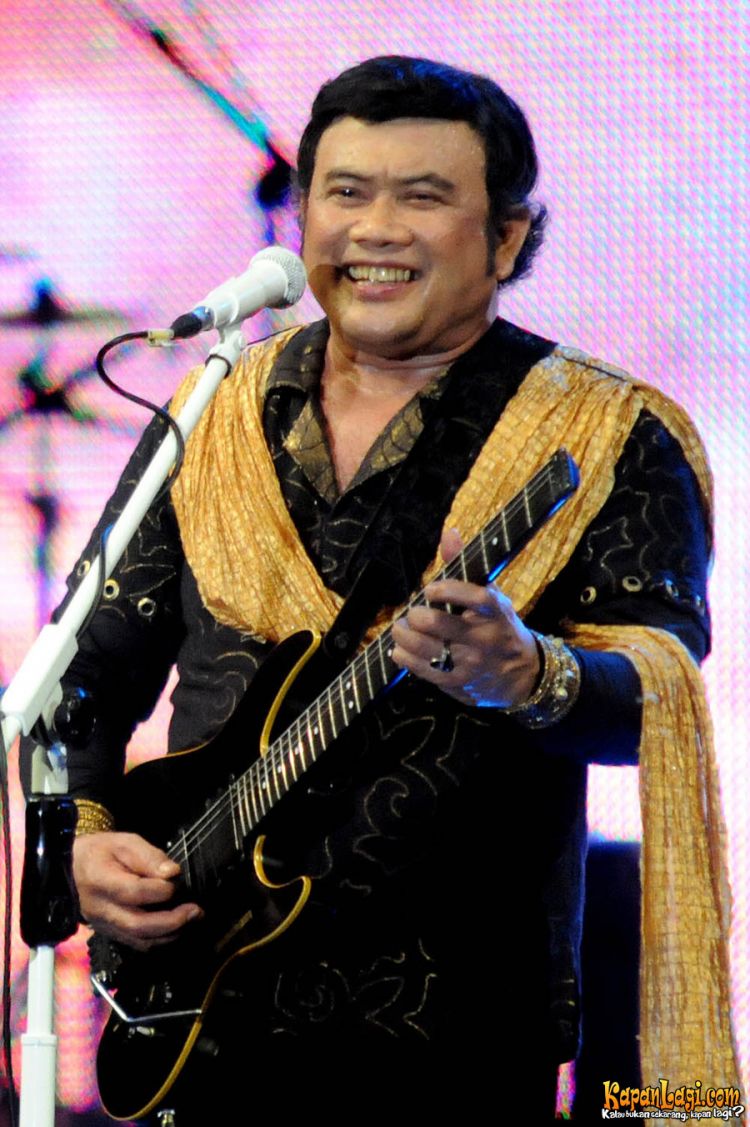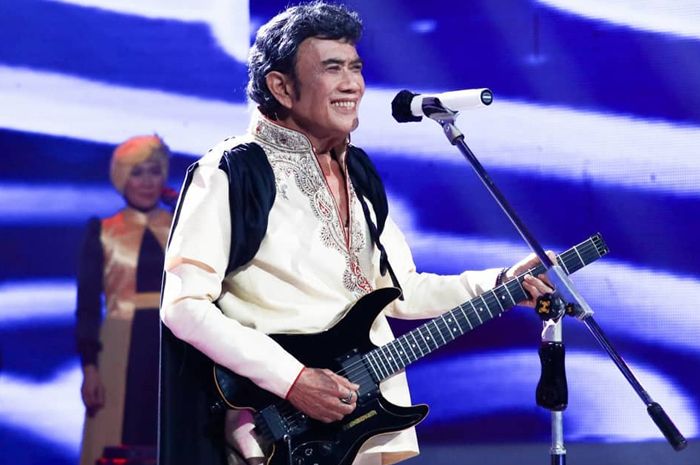

Late 1970s onward: Islamic pious music įollowing his 1975 hajj, he took the name Rhoma Irama, which is an abbreviation of "Raden Haji Oma Irama" (Raden is an aristocracy title for Javanese and Sundanese cultures). This particular guitar was shown off in his posters, leaflets, movies, and pin-ups. He is also notable with the use of some notable musical instruments including various models of Steinberger guitars. Performing live, he adopted many of the props of stadium rock, including large audiences, powerful sound systems, complex sets, fireworks, flashing lights, and smoke machines. He wrote the classics "Kereta Malam" (night train) and "Kuda Lumping" which were sung by Elvy Sukaesih. Once Soneta was established in the early 1970s, Oma changed his name to Rhoma and went on a decade-long run of successful hit records and films, all of which starred Rhoma playing himself while performing all of his hits.

His 1973 hit " Terajana", one of the best-known dangdut songs of all time, was the first to use the newly coined, and arguably derogatory, term dangdut, distinguishing the Javanese Orkes Melayu music, heavily influenced by Indian Bollywood records, henceforth dangdut, from the established Orkes Melayu, associated with North Sumatran Malays. Furthermore, the main single "Begadang" reached at number 24 on the magazine's " 150 Greatest Indonesian Songs of All Time" list. 11 on Rolling Stone Indonesia 's " 150 Greatest Indonesian Albums of All Time" list. In addition to Western and Malay influences, Hindi composers were credited for some of the band's songs. He has stated that he took his guitar style from Ritchie Blackmore of Deep Purple. His choice of pose showed the influence on his music of Western bands, influences which also found their way into his music – Orkes Melayu was in his opinion was too soft, too acoustic, too polite, and unable to compete against the power and energy of rock music, and so the music was electrified, with keyboard, two electric guitars, electric bass, as well as the traditional suling and gendang. The song featured a topless Oma Irama wearing tight trousers and holding an electric guitar. Their first album, Volume 01, Begadang ("Stay up all night"), released in 1973, featured four songs by Oma Irama, three by Elvy, and three duets. The group featured Oma Irama and Elvy Sukaesih as singers, both solo, and duets. The subtitle, the sound of Moslems was added in 1973. Once Oma broke from recording with the Purnama Group, he formed Orkes Melayu Soneta (taken from English word sonnet), which became the first dangdut group in 1970.

He also recorded pop Indonesian music during this period with the Zaenal Combo and Galaksi, while the album Ingkar Janji was recorded in 1969 with Orkes Melayu Chandraleka. This group pioneered elements of the dangdut style within Orkes Melayu music – the drum was changed to double drum, the electric guitar's role was expanded, and the suling, or bamboo flute, adopted a style reminiscent of Bollywood music. In 1968 he joined the group Orkes Melayu Purnama in 1968. In the late 1960s Oma Irama, sang jawa and also some pop Indonesia music. Oma Irama's first bands were known as Tornado and Gayhand and covered Western rock and roll music of Paul Anka, Andy Williams, and The Beatles. He has been active as well in the political arena, with a history of joining campaigns for the Islamic Party United Development Party (PPP).

He has also built his career in the film industry. During the height of his stardom in the 1970s, he was dubbed "Raja Dangdut" ("the King of Dangdut") with his Soneta Group. He then formed his band Soneta Group, achieving multitudes of musical successes with groundbreaking dangdut style which incorporates Western, Malay, and Bollywood influences.įrom the late 1970s, he began transforming into more Islamic-oriented style, commanding the religiously pious popular music culture. Starting from the late 1960s, he began his musical career as Rhoma Irama as a part of the pop band Orkes Melayu Purnama, pioneering several dangdut music elements. Raden Haji Oma Irama or better known as Rhoma Irama (born in Tasikmalaya, West Java, Indonesia on December 11, 1946) is an Indonesian dangdut singer, songwriter and guitarist of Sundanese descent.


 0 kommentar(er)
0 kommentar(er)
